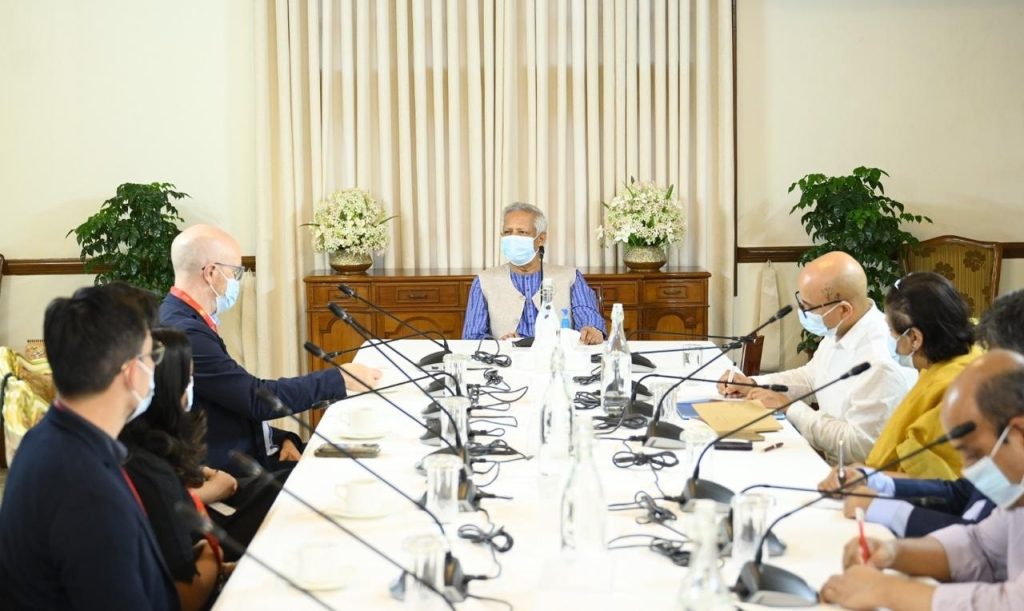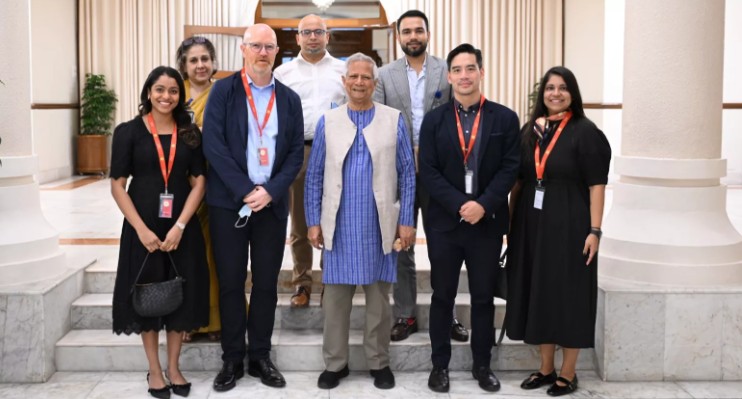As Bangladesh heads toward a highly anticipated national election under an interim administration, the recent meeting between Chief Adviser Muhammad Yunus and Meta executives signals a potentially important turning point in the country’s approach to digital governance, analysts say.
The discussion, they said, reflects an urgent need to address the rise of misinformation and hate speech on social media platforms, especially those operated by Meta, including Facebook, Instagram, Threads, WhatsApp, and Messenger.
In a country where political tensions run deep and emotions can be easily inflamed, unmoderated or poorly moderated content can quickly escalate into real-world consequences.
Dr. Yunus’ remarks were not just a diplomatic formality; they constituted a clear demand for corporate accountability.
Emphasising that “a single piece of false information or a provocative word can shake the entire nation,” he warned of the deliberate exploitation of online platforms by vested interests.
His call for ethical governance on digital platforms comes at a time when global tech companies are being pressured by governments worldwide to localise responsibility and adapt to diverse linguistic and cultural contexts. Bangladesh, with its high internet penetration but limited local content moderation, stands at a particularly vulnerable juncture.
Meta’s response, through Vice President Simon Milner, was measured but encouraging.

The company reiterated its willingness to cooperate with the Bangladeshi government and highlighted that it has had a dedicated team focused on Bangladesh for the past five years. This indicates that some groundwork has already been laid.
However, experts say, the real challenge lies not in intention but in execution, particularly when it comes to addressing content in the Bangla language.
Chief Adviser’s Special Assistant on Posts, Telecommunications and Information Technology, Faiz Ahmad Taiyeb, rightfully pointed out a glaring issue: Meta’s moderation and AI tools remain heavily English-centric.
This creates a blind spot for Bangla-language disinformation, hate speech, and cultural slurs, many of which can trigger violence or unrest in politically volatile regions. Strengthening Bangla language models, investing in natural language processing tailored to local speech patterns, and hiring more native-speaking content reviewers are no longer optional; they are essential to national security and digital stability.
Mata’s parallel discussions with the ICT Division and BTRC have added further specificity to Bangladesh’s expectations.
These include the recruitment of content moderators from within the country who understand its socio-cultural context, the installation of local cache servers and edge routers to improve service quality and data handling, and robust safeguards for user data. The urgency of these demands becomes even more pronounced in the context of upcoming elections, where the role of social media in shaping narratives, influencing public opinion, or even inciting violence cannot be underestimated.
Law enforcement agencies also made a strong case for a more responsive and streamlined content takedown process.

In recent years, online rumours have sparked mob violence, and poorly managed viral content has led to widespread panic. Rapid response protocols, particularly for posts involving suicide, communal unrest, or disinformation during elections, must be established if Meta is to be seen as a genuine partner in safeguarding public order, experts said.
What emerges from this multi-agency engagement with Meta is a rare instance of alignment between the government, civil society, and law enforcement on the issue of platform accountability. Bangladesh is not demanding censorship; it is asking for responsibility, transparency, and technological alignment.
These discussions also reflect a growing awareness that digital sovereignty is now as important as physical borders, and that unchecked platforms can exert disproportionate influence on democratic processes.
While it remains to be seen how many of these proposals Meta will implement in a tangible and time-bound manner, Bangladesh has positioned itself to become a compelling case study in how smaller nations can assert their rights in the global tech ecosystem.
If Meta follows through on its promises, especially regarding language parity, technical upgrades, and real-time responsiveness, Bangladesh could set a precedent for how to integrate international digital platforms into a locally governed information environment.
But the true test will come not in promises or policy statements, but in how effectively these commitments are translated into action before, during, and after the election. For now, Bangladesh has made its expectations clear.


